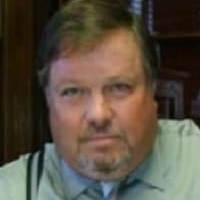 Monroe Criminal Lawyers, Connecticut
Monroe Criminal Lawyers, Connecticut
Sponsored Law Firm
-
 x
x

Click For More Info:
-
Maya Murphy, P.C.
266 Post Road E Westport, CT 06880» view mapDivorce & Family Law Representing Excellence
At Maya Murphy, PC, our attorneys strive to provide large firm service, experience, and ability, with small firm communication, attention, and accountability.
203-221-3100
Sponsored Lawyers
1-5 of 5 matches
Car Accident, Accident & Injury, Wills & Probate, Wrongful Death, Criminal
Attorney Gusmano was chosen for inclusion in 'Connecticut Magazine and New England Super Lawyers Magazine as a Super Lawyer in Personal Injury from 2013-2014, and each year since 2018." Super Lawyers is a rating service of lawyers from more than 70 practice areas who have attained a high-degree of peer recognition and professional achievement. The selection process is multi-phased and includes independent research, peer nominations and peer evaluations. Attorney Gusmano was recognized for his Personal Injury work on behalf of injured parties. Paul C. Gusmano joined the firm in February 1991. Gusmano currently concentrates in the area of civil/personal injury litigation and serves as the firm's managing attorney. Admitted to practice in Connecticut, New York and New Jersey, as well as the U.S. Court of Appeals for Second Circuit and the United States Supreme Court, Gusmano is a member of the Connecticut Bar Association, the New Jersey Bar Association, the New York Bar Association, American Association for Justice, the Connecticut Trial Lawyers Association, the National Association of Criminal Defense Lawyers, and the Connecticut Criminal Defense Lawyers Association. He has served on the Board of Directors of various non-profit organizations, as well as various bar association committees. Gusmano also serves as an attorney trial referee for the Connecticut Superior Court, having been appointed by the Chief Justice of the Connecticut Supreme Court. Gusmano received Bachelor's Degrees in Political Science and English from Rutgers University in 1987. He received his Juris Doctorate degree from the University of Bridgeport / Quinnipiac College School of Law in 1990, while studying law at Queens College / Oxford University. Gusmano is a member of the Million Dollar Advocates Forum, an organization whose membership is limited to attorneys who have obtained settlements or judgments of $1 million or more. (Please note past settlements or judgments are no indication of the value of your case.)
(more)


 Joseph C. Maya Westport, CT
Joseph C. Maya Westport, CT Practice AreasExpertise
Practice AreasExpertise

